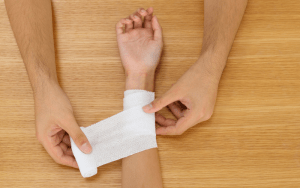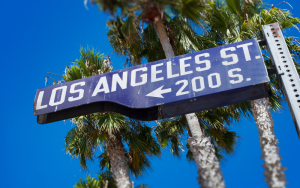Everywhere you go, everybody owes you a duty of care in some way. The drivers on the roadways must pay attention to your vehicle and show you a duty of care while driving. The same can be said when you enter into a store and slip and fall. This is something that is seen as “preventable,” which means that a store owes you a duty of care to ensure that these accidents do not  happen in the first place. If an employee or manager leaves a slippery substance on the floor and fails to clean it up, this is seen as a hazard that the customer might not have seen, especially when a “wet floor” sign is missing from the immediate area. When a store breaches their duty, this is when negligence comes into play.
happen in the first place. If an employee or manager leaves a slippery substance on the floor and fails to clean it up, this is seen as a hazard that the customer might not have seen, especially when a “wet floor” sign is missing from the immediate area. When a store breaches their duty, this is when negligence comes into play.
Slip-and-fall injuries are more common than you think, but in almost every situation they are also preventable. If you fell inside a store, one of the first things you may think is that you cannot bring a lawsuit because you failed to buy anything before the accident – and this is far from the truth. A grocery store has legal obligations to their customers that do not begin when you buy something. Instead, they owe this duty all the time. When the supermarket breaches their duty of care, this is known as a negligent act. Slippery floors and aisles count as negligence because the employees should have known about the harm. This is also seen as a premises liability claim because the owners of these big supermarkets understand that customers will constantly be coming and leaving their store, so they have a specific duty to maintain safe premises.
Over the years, many slip and fall cases have become a centerfold in the media after causing very serious injuries that forever changed the lives of the victims. In fact, in 2012 a plaintiff slipped on a puddle of soap in a Costco store and shattered her kneecap. Many Costco employees knew about the spill but proceeded to walk right past it, ignoring it. Costco was ordered to pay over $400,000 for the woman’s medical expenses, pain, and suffering. Many more cases similar to this one happen every year because of a store’s negligence and failure to adhere to negative conditions. However, these accidents should not be as common as they are because of an employees’ failure to manage the condition.
How to Hold the Store Liable
The key here is to be able to show evidence of everything that you witnessed before and after your fall. Can you show that a spill sat in an aisle long enough for the store to become aware of its presence? Did the store create the dangerous situation themselves by using an exceptionally slippery wax to clean its floors? Whether or not the store can be held at fault will be the focal point o your case in regards to settlement negotiations. No matter what, if you sustained an injury on somebody else’s property due to an accident, you are likely to receive an injury compensation award. The size will depend upon how much you can prove. (1)
(1) https://www.alllaw.com/articles/nolo/personal-injury/stores-liability-slip-fall-accidents.html#





